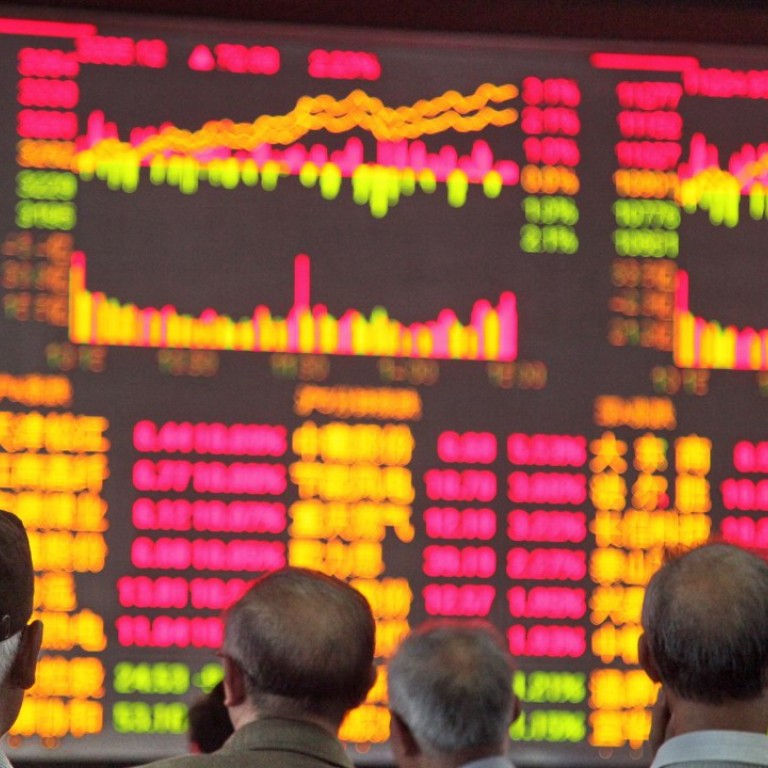
Three big failures sent China’s stock market on a crash course: report
Investors, regulators and the media must all share blame for the market rout that wiped out trillions of yuan in value, a semi-official report says
Investors borrowed too much to speculate on shares, regulators were too incompetent to see the crisis, and the media failed to remind the public about risk.
Those were the causes of the mainland’s summer stock market rout, according to a 300-page report by three high-profile financial figures in Beijing.
Instead of blaming a few individual “bad guys” for the crash, the first semi-official report gives a comprehensive overview of the systematic failures that sent the benchmark Shanghai index tumbling over 30 per cent in four weeks. The spectacular collapse not only wiped out trillions of yuan of market value in just a few weeks but also triggered doubts about the ability of the leadership to manage the economy.
Read more: China stock market rout seen as opportunity to push reform and broaden investor base
Mainland authorities have detained various people they suspect as responsible for the rout. Yao Gang , former vice-chairman of the China Securities Regulatory Commission, is the latest to come under investigation. Cheng Boming, the president of Citic Securities, hedge fund billionaire Xu Xiang and Caijing magazine journalist Wang Xiaolu are among dozens of people who are in the spotlight for alleged inside trading and other offences.
Some people say China’s stock market is like a casino, and others say it’s worse than that
But the real causes of the crisis go well beyond the misconduct of any individual, according to Wu Xiaoling, a former central bank vice-governor and now a financial legislator; Central Huijin Investment vice-chairman Li Jiange; and Wang Zhongmin, a deputy chairman with the National Council for Social Security Fund.
“The excessive and chaotic application of leveraged buying, and lax regulation over financial products, prevented Chinese regulators from effectively monitoring and quantifying stock market risks, and that’s the most important reason for the stock market swing,” the three authors wrote in a report put out by Tsinghua University’s National Institute of Financial Research.
Read more: China’s stock market crash may only delay policy reforms, not economic growth
“Both state media and market-oriented media organisations, failed to play their watchdog role,” it said. “Media reports directly fanned expectations of an ever-rising stock market.”
The absence of a circuit-breaker, the 10 per cent price movement daily limit, and a system that discouraged short-selling all contributed to the A-share market’s woes, the report said.
The report also made a series of policy suggestions, including expanding the CSRC’s regulatory role and establishing a national capital market crisis management mechanism.
Beijing Institute of Technology economics professor Hu Xingdou said any real change was a long way off.
“On the surface, Beijing has started to arrest a lot of people and is striking hard on irregularities,” Hu said. “But the government hasn’t really tackled any institutional issues in the stock market since the rout.
“Some people say China’s stock market is like a casino, and others say it’s worse than that.
“It will take many years for that perception to change.”

